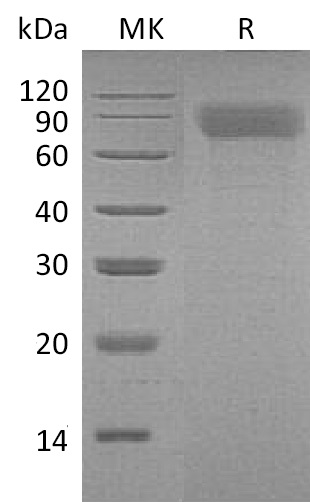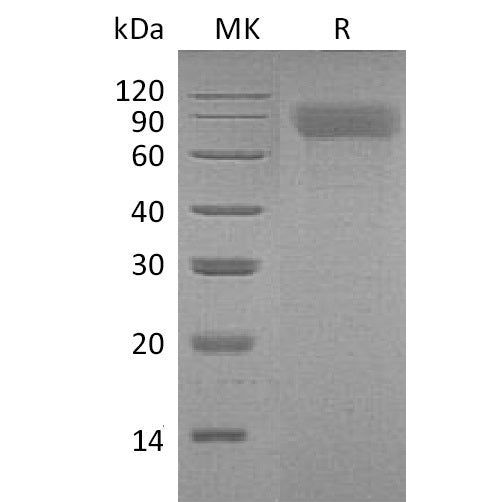Product Details
Product Details
Product Specification
| Synonyms | Thrombopoietin; C-mpl ligand; Megakaryocyte colony-stimulating factor; Megakaryocyte growth and development factor; Myeloproliferative leukemia virus oncogene ligand; THPO |
| Accession | P40226 |
| Amino Acid Sequence | Ser22Thr356 |
| Expression System | HEK293 |
| Molecular Weight |
36.4 KDa
|
| Purity | >95% by SDS-PAGE |
| Endotoxin | <1EU/μg |
| Conjugation | Unconjugated |
| Tag | His Tag |
| Physical Appearance | Lyophilized Powder |
| Storage Buffer | PBS, 2mM EDTA, pH 7.4. |
| Reconstitution |
|
| Stability & Storage |
|
Background
Thrombopoietin (TPO) is a glycoprotein hormone which belongs to the EPO/TPO family. It produced by the liver and kidney which regulates the production of platelets.Mature mouse Tpo shares 71% and 81% aa sequence homology with human and rat Tpo, respectively. It is an 80-85 kDa protein that consists of an N-terminal domain with homology to Erythropoietin (Epo) and a C-terminal domain that contains multiple N-linked and O-linked glycosylation sites. TPO stimulates the production and differentiation of megakaryocytes, the bone marrow cells that bud off large numbers of platelets. Lineage-specific cytokine affects the proliferation and maturation of megakaryocytes from their committed progenitor cells. It acts at a late stage of megakaryocyte development. It may be the major physiological regulator of circulating platelets.
Picture
Picture
SDS-PAGE



